Go Organic For Sustainable Development
Going “organic” is usually associated with living a healthy lifestyle where consumers prefer eating food, vegetables, fruits, and even animals raised, the organic way.
But on the other side of the coin, “going “organic” also means that farmers also don’t use pesticides and chemicals anymore on their plants, which eventually ends up in the soil- poisoning the very source and ground where we get our food.
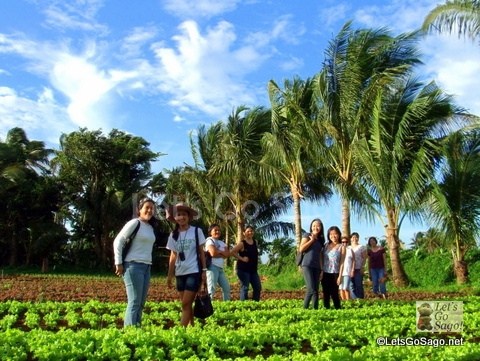
Organic Farming in the Philippines
Organic Farms around the Philippines
Our preference for the organic lifestyle started when we joined the Department of Agriculture‘s Agricultural Training Institute (ATI) since 6 years ago. We’ve been to Bacolod, Bukidnon, Naga, Benguet, Misamis Oriental, and Sagada, to name a few, in pursuit of exploring and discovering organic farms and their practices, around the Philippines.
It was an eye-opening adventure with the ATI as they showcased the efforts of select farmers, most of which are former chemical fertilizer farmers, who have converted their lands into government-certified organic farms while slowly incorporating agricultural tourism into their own organic systems.
In a way, it is now their personal advocacy to spread the gospel of organic farming and how it benefited their farm, their business, and the community of fellow farmers around them by educating the people, hiring more workers thus producing jobs, and most importantly – its postive effects on the environment and the people living in the community.
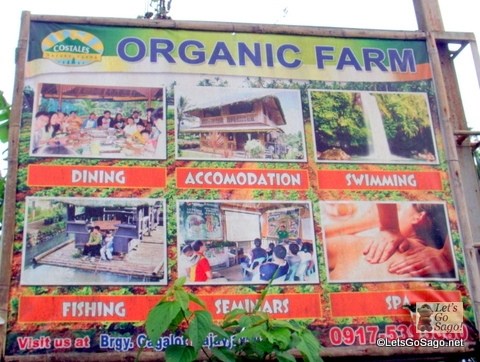
An Organic Farm in Misamis Oriental, Mindanao, Philippines
For example, in one of the organic farms we visited, the farm also serves as an education center for other starting organic farmers to learn about vermicomposting and producing organic fertilizers, among others. They also explore organic rice production using RU vermiscast which is a production of different varieties of rice in an organic way using RU vermicast, vermitea, and slurry from biogas.
The Organic Lifestyle
My point in sharing these thoughts and experiences is to encourage you – my readers, to start considering the organic lifestyle.
Converting to an organic lifestyle is not easy. Specially in a third-world country like the Philippines, the industry is still at its infancy. There are only a few organic produce in our supermarkets today. Sometimes, I see some in SM Supermarkets, while Robinsons Supermarkets and Rustan’s cater to more variants.
While the demand from consumers is currently fairly low, the supply would also be scarce.
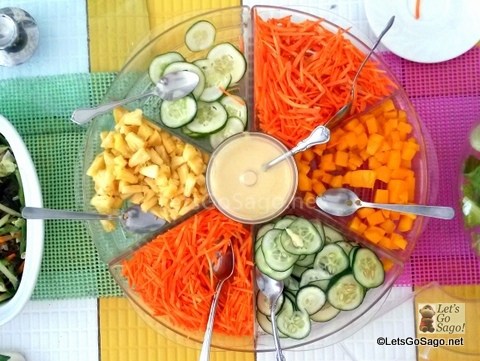
Organic Fruits & Vegetables
Moreover, most organic produce are still very much expensive compared to regular, industry accepted vegetables and fruits which are usually bombarded with chemical fertilizers to maintain visual “freshness” and last “long” through trade and transport from the provinces to the cities.
But that doesn’t mean we just give up to the status quo. In fact, the country’s organic industry is on the rise as more and more farms in the countryside and nearby cities such as Costales Farm in Laguna.became successful in their business model and is currently serving as a role model to other organic farms.
Eventually, when more demand for organic produce will be present, more farmers will logically switch to organic farming as well, thus naturally pushing down its prices as well via the law of supply and demand.
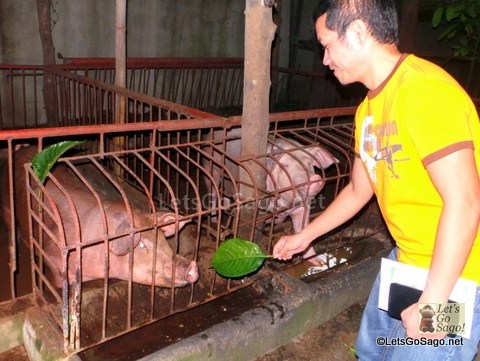
Blogger Manila feeding some “Organic Pigs” !
I will not even get into the health benefits of organic vegetables and fruits; that is for another article. But what I want to emphasize is the environmental benefits it can give to our soil and the community in which we live in.
Join Juan Earth
On a similar note, an upcoming advocacy highlighting the importance of taking care of our planet is Juan Earth.
It’s a grassroots effort produced by Write On Track with a team of community volunteers. They aim to educate and empower people to create a healthier, and more sustainable world while actively building an interconnected and expanding network of neighborhood, cities, and regions.
By participating in simple acts to save the earth such as recycling, planting trees, and protecting animals, every Juan’s collaborative effort to preserve and protect the Earth can make an impact.
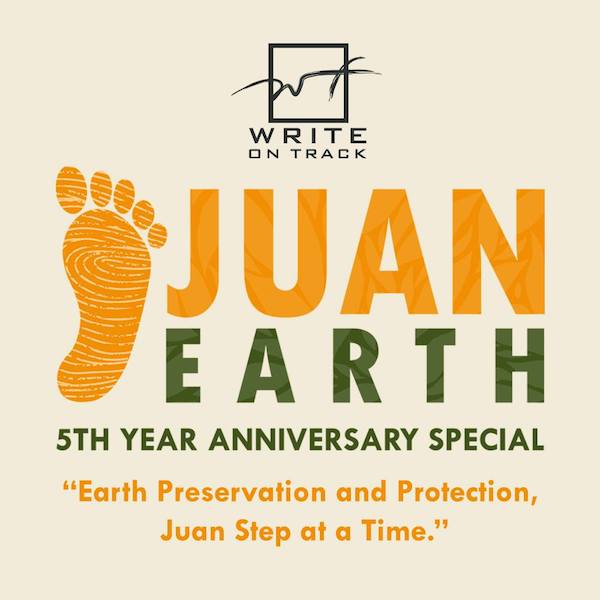
Join Juan Earth‘s 5th Anniversary Celebrations and Activities @ BGC, Taguig City on September 29, 2018!
Juan Earth‘s 5th Anniversary special shall happen on September 29, 2018! Know more about it ’juan step at a time’ at http://juanearth.com.
Explore more about life and style from Blogger Manila through email subscription here. Like our Facebook Page, Twitter @BloggerManila, and on Instagram. (Photos in this article are mostly form my travel blog ‘Let’s Go Sago!’)
As for organic farming, the Philippines still has vast land areas of fertile soil. With good organic practices and able individuals with passion towards the cause, this will surely be realized in the very near future. ”Let’s Go Organic!” and reap the benefits of sustainable development for our families and future generations!
Related Posts
-
 Beauty & Wellness: Join BEAUTY CON 2024 at SMX Manila!
March 20 to 23, 2024 promises to be the most important dates for all
Beauty & Wellness: Join BEAUTY CON 2024 at SMX Manila!
March 20 to 23, 2024 promises to be the most important dates for all -
 ‘Barangay Singko’: TV5 Introduces Innovative Home-Grown Game Show w/ Sitcom Flair in Primetime Block
TV5 continues to elevate the Filipino TV experience as they introduce new flavors and
‘Barangay Singko’: TV5 Introduces Innovative Home-Grown Game Show w/ Sitcom Flair in Primetime Block
TV5 continues to elevate the Filipino TV experience as they introduce new flavors and
About Author
Jon
Jonel Uy is the EIC of BloggerManila.com. Graduating from UP Diliman with a degree in Computer Science, he is also the Managing Director of #DigitalCircles.asia engaging and amplifying social media campaigns for brands. On Mondays, he teaches information technology classes at Grace Christian College. Know more about him at JonelUy.com

